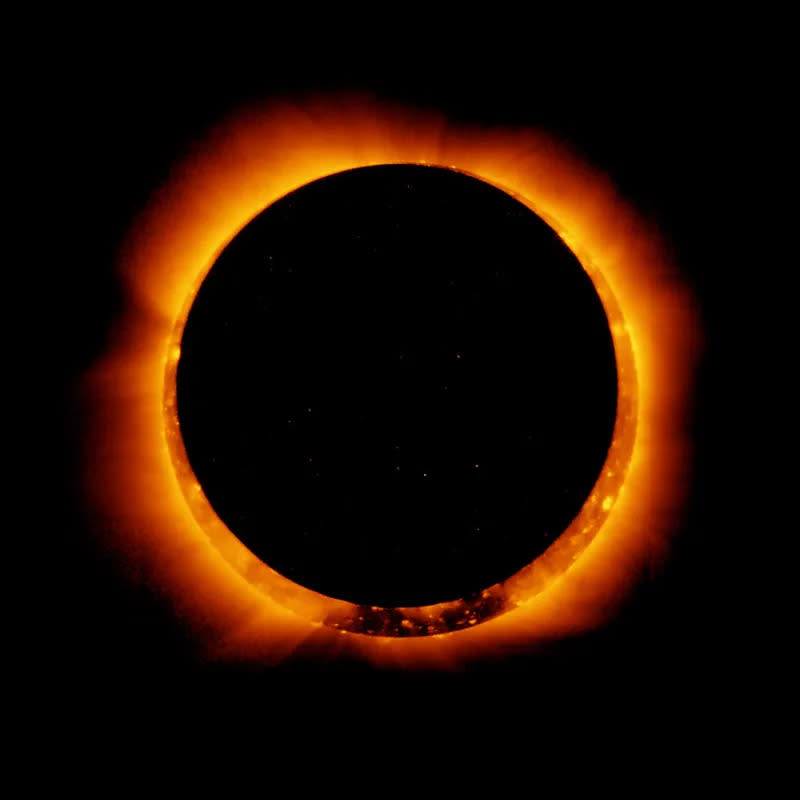A Variety of Tribal Traditions During the Eclipse

Weather permitting, millions of people in the United States will be able to witness a solar eclipse on Saturday. The eclipse that will occur on Saturday is called an “annular solar eclipse,” which happens when the moon passes in front of the sun. This eclipse will look like a ring of fire.
The U.S. space agency NASA says the path in the United States where the maximum views will occur on Saturday runs through portions of several states beginning at 9:13 am - PDT in Oregon, then California, Nevada, Utah, Arizona, New Mexico and Texas. People living in other parts of North America will be able to see less obscuring of the sun, but still impressive to see the eclipse.
Eclipses evoke different beliefs among Native American tribes. For instance, among the Navajo ( Diné), the eclipse is a powerful astronomical event that shouldn’t be viewed out of respect.
The Navajo Nation Parks and Recreation decided to close its Navajo tribal parks, including the Monument Valley and the Four Corners Monument, from 8 am - 1 pm out of respect of the solar eclipse. Louise Tsimijinnie, a media representative, told the Navajo Times the park’s closure is due to Diné tradition.
Tsinijinnie said as she was raised, she was taught to be respectful during a solar eclipse. She was taught that the eclipse is not for viewing nor something for Diné to see.
Ahead of the eclipse, the City of Albuquerque’s Indian Affairs released a statement recognizing Indigenous people will not be participating in public celebrations of eclipse.

Other tribes have similar beliefs about eclipses:
During eclipses, many Cherokees go outside and make noise to scare away the giant frog trying to eat the sun.
The Ho-Chunk in Wisconsin believes eclipses, both sun and moon eclipses, are to be respected because the time during eclipses is a time of transformation.
The Hopi in Arizona believe the time during an eclipse it a time to pray and a time for ceremony, such as a time to present traditional sacred names.
Regardless of your belief system, experts warn it is unsafe to look directly at an eclipse without some specialized eye protection due to the brightness of the sun. Without using a special-purpose solar filter when viewing an eclipse can cause severe eye injury, according to experts.
About the Author: "Levi \"Calm Before the Storm\" Rickert (Prairie Band Potawatomi Nation) is the founder, publisher and editor of Native News Online. Rickert was awarded Best Column 2021 Native Media Award for the print\/online category by the Native American Journalists Association. He serves on the advisory board of the Multicultural Media Correspondents Association. He can be reached at levi@nativenewsonline.net."
Contact: levi@nativenewsonline.net

